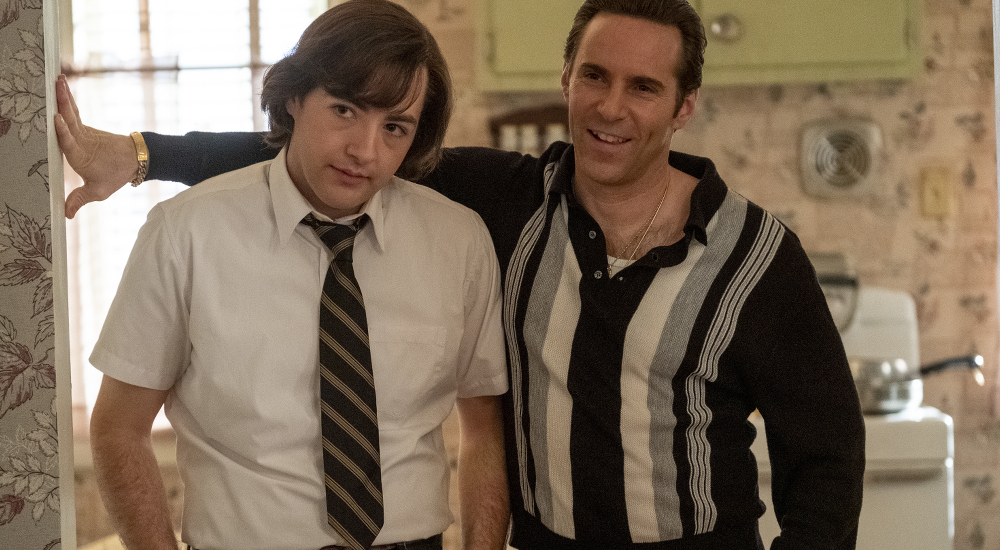There are plenty of miniseries that should have been movies. But The Many Saints of Newark is the rare movie that should have been a miniseries. As a film and a prequel to The Sopranos, it covers a lot of ground. But it still feels like there's a lot more to tell. Maybe that means we'll get "Sopranos Story" in the future. But as it stands, this can't help but feel a little unsatisfying.
For fans of the show, this is an opportunity to explore the rise and fall of Dickie Moltisanti (Alessandro Nivola). He was long dead by the time we first met Tony, but his presence loomed large over everything. Those who come in cold might be a little baffled. They'll have at least one major event spoiled, and will miss a lot of the inside jokes. Even though it pales in comparison to one of the greatest series ever, there's a lot to admire.
Moltisanti - which literally means "many saints" - starts in the shadow of his father (Ray Liotta), an old-school mob boss who often turns his violent temper on his family. After his death, Dickie takes over his life, plunging further into the darkness of organized crime. He even starts sleeping with his dad's new wife (Michela de Rossi), which gives new meaning to the oft-repeated epithet of "motherfucker." But as many mob stories go, there's no way for a man to keep his hands clean in that world. The lines he swore not to cross inevitably get crossed.
Dickie's conflicts come from two major sources: a turf war started by his former numbers runner Harold (an excellent Leslie Odom, Jr.), and his attempts to keep his nephew Tony (Michael Gandolfini) out of trouble. It's impossible to be both a good capo and a good example, which leads to fractured relationships and bad business. Nivola is such a good actor that we can see the weariness on his face, the toll of his guilt piling up. Scenes where he visits his uncle (Ray Liotta) in prison are some of the best in the film, as Dickie searches for absolution from a "priest" who couldn't possibly care less.
But there are some major flaws that can't be ignored. While the acting is generally great across the board, two performances stand out in the wrong way. I'm generally a fan of both John Magaro and Billy Magnussen, but they're just doing bad impressions of Silvio and Paulie, respectively. The former in particular is especially distracting. And while the production design - recreating the New Jersey of the '60s and '70s - is immaculate, the digital photography robs it of any vibrancy.
And there's the big elephant in the room. While the film addresses the Newark riots of 1967, paying attention to how it affects Harold's arc, it's still mostly seen through the eyes of its white characters. They view the shake-ups as mere inconveniences, or covers for their own crimes. There's very little grappling with any of the reasons for the eruption of violence. (Then again, it's not as if the show was a shining example of how to handle race.)
The Sopranos was a once-in-a-lifetime collision of the right talent telling the right story at the right time. The Many Saints of Newark has a great team in front of and behind the camera, but it can't quite conjure the same magic.

